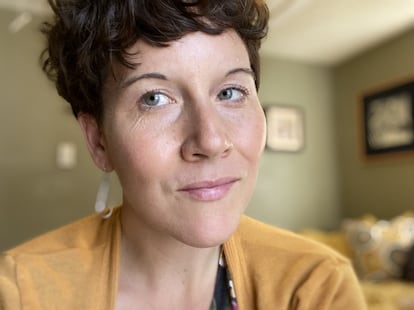Elon Musk and Tesla car deaths: The price of a businessman’s ambition
A documentary by ‘The New York Times’ examines the entrepreneur’s quixotic efforts to sell fully autonomous cars before they even exist


In the spring of 2016, Joshua Brown died behind the wheel of his car, although he was not the one driving. He is considered to be Tesla’s first fatality. A thrill seeker obsessed with new technology, Brown posted about the benefits of his Tesla Model S and praised Elon Musk, the company’s CEO, on his YouTube channel. He shared the videos on social media and they went viral shortly before the fatal crash.
Owner video of Autopilot steering to avoid collision with a truckhttps://t.co/FZUAXSjlR7
— Elon Musk (@elonmusk) April 17, 2016
Elon Musk’s Crash Course is a new documentary in The New York Times Presents series that examines the entrepreneur and Tesla’s quest to sell the world a fully autonomous car before the company could even manufacture it. The film doesn’t aspire to offer a biography of the high-profile businessman. After all, Musk already appears daily in the press, and he posts frequently on social media about his innovative technology - Tesla cars, space exploration and, more recently, his desire to acquire Twitter. The documentary focuses specifically on Musk’s autonomous-driving technology and his work at Tesla.
The film’s director, Emma Schwartz, believes that going into such detail helps gain perspective on the entrepreneur. “When there is so much information about something or someone, it creates a situation where you can’t see the forest for the trees. So we forced ourselves to take a step back and look at the impact of a powerful, wealthy man who is involved in so many different industries and companies. Certain patterns of behavior can go unnoticed in day-to-day monitoring,” the journalist said in a video interview from Washington.

Schwartz’s investigation highlights the entrepreneur’s quixotic dream of creating self-driving cars. Thus far, Musk’s efforts to produce autonomous-driving technology have resulted in a slew of unfulfilled promises and several tragedies. Autopilot has caused several deaths and dozens of accidents, about which Tesla has not been completely transparent, the documentary argues. “As a publicly traded company, there’s a lot of public information about Tesla, but such companies know how to hide certain information. Tesla regularly provides the US government with data about the safety of its vehicles, and even when a federal agency asks questions about it, [the company] doubles down …You can’t help but wonder why,” she notes.
Despite several requests, Musk refused to participate in the documentary, Schwartz explains. To piece the story together, the newspaper’s research team contacted dozens of people, including Tesla employees who had worked side by side with the billionaire. Some of them have spoken on camera, while others preferred to remain anonymous. “We were compiling a story without [Musk’s] participation, so the most difficult thing was finding [people] close to him to talk about what happened. There was a lot of fear of retaliation,” Schwartz says. These former collaborators say that Tesla is a very personal project for Musk, who sometimes takes it upon himself to make the company’s key decisions.
Elon Musk’s Crash Course presents its findings in a clear and chronological way. The 70-minute-long documentary shows Musk’s contradictory statements over the years. These include Tesla’s repeated announcements of imminent developments on social media and in public speeches that draw the attention of the press and investors. But those innovations don’t materialize on the announced date. In many cases, they don’t materialize at all, because, as some of the engineers who have worked on making these cars admit, technology is just not ready to produce a machine that can drive on the road safely without human intervention. Many of Tesla’s fans and customers believe the company’s cars are far more autonomous than they actually are.
Musk himself acknowledged in an interview with The New York Times that he tends to bite off more than he can chew. For that reason, his statements about Tesla’s advances often sound like science fiction even to his own engineers, as they recount in this film. “There’s a large gap between [Musk’s] vision and what technology can really deliver,” Schwartz concludes.
Tu suscripción se está usando en otro dispositivo
¿Quieres añadir otro usuario a tu suscripción?
Si continúas leyendo en este dispositivo, no se podrá leer en el otro.
FlechaTu suscripción se está usando en otro dispositivo y solo puedes acceder a EL PAÍS desde un dispositivo a la vez.
Si quieres compartir tu cuenta, cambia tu suscripción a la modalidad Premium, así podrás añadir otro usuario. Cada uno accederá con su propia cuenta de email, lo que os permitirá personalizar vuestra experiencia en EL PAÍS.
¿Tienes una suscripción de empresa? Accede aquí para contratar más cuentas.
En el caso de no saber quién está usando tu cuenta, te recomendamos cambiar tu contraseña aquí.
Si decides continuar compartiendo tu cuenta, este mensaje se mostrará en tu dispositivo y en el de la otra persona que está usando tu cuenta de forma indefinida, afectando a tu experiencia de lectura. Puedes consultar aquí los términos y condiciones de la suscripción digital.








































